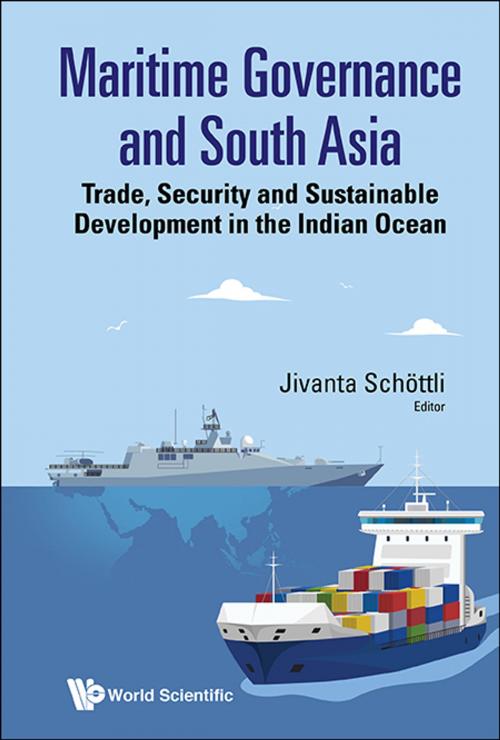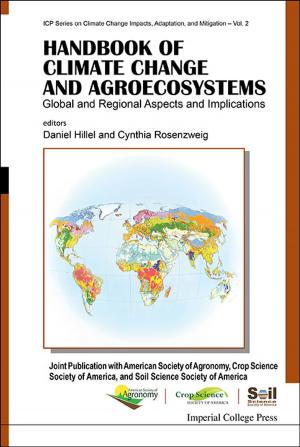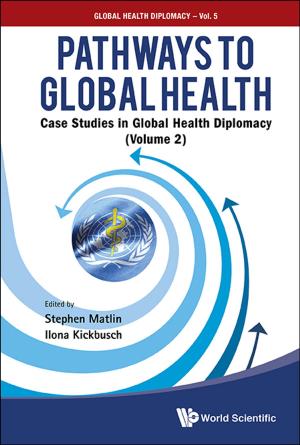Maritime Governance and South Asia
Trade, Security and Sustainable Development in the Indian Ocean
Nonfiction, Social & Cultural Studies, Political Science, International, International Relations| Author: | Jivanta Schöttli | ISBN: | 9789813238244 |
| Publisher: | World Scientific Publishing Company | Publication: | March 19, 2018 |
| Imprint: | WSPC | Language: | English |
| Author: | Jivanta Schöttli |
| ISBN: | 9789813238244 |
| Publisher: | World Scientific Publishing Company |
| Publication: | March 19, 2018 |
| Imprint: | WSPC |
| Language: | English |
Five out of the eight South Asian countries have direct access to the Indian ocean, yet research tends to focus instead on the region's landmass. Much less attention is paid to the extensive maritime space that links South Asian countries, provides their populations with vital access to resources, connects their economies to global trade networks and perhaps most importantly, contributes to law and order at sea.
At a time when the Indian Ocean has gained great interest and relevance for many global actors, the role and location of South Asia will have critical implications for strategic calculation and alignment. Furthermore, if trade imbalances are to be tackled and economic globalization to regain steam, enhancing South Asia's ability to export and import through the oceans is essential. Finally, climate change is projected to impact South Asia massively. Coping with humanitarian crises and natural disasters will need critical investments in maritime capacities and cooperation.
This edited volume brings together multiple perspectives on contemporary maritime governance in South Asia, from practitioners, policy-makers and academics around the world. They examine India's role as South Asia's leading naval and economic power and the capacity of key actors to shape maritime order in the Indian Ocean.
Contents:
-
Foreword (Tommy Koh)
-
Preface and Acknowledgements
-
List of Contributors
-
Editorial Introduction (Jivanta Schoettli)
-
Order:
- Security in the Indian Ocean (Shivshankar Menon)
- Sri Lanka's Role in the Indian Ocean and the Changing Global Dynamics (Harsha de Silva)
- Resolution of Maritime Boundary Disputes among Bangladesh, Myanmar and India in the Bay of Bengal (Md Khurshed Alam)
- Maritime Safety and Security and Development of the Blue Economy in the Indian Ocean Rim Association (IORA) (K V Bhagirath)
- oes India Use Trade Effectively? (Frank Lavin)
-
Leadership:
- India as a Net Security Provider in the Indian Ocean Region: The Strategic Approach of a Responsible Stakeholder (Abhay Kumar Singh)
- Does South Asia Use Trade Effectively? (Frank Lavin)
- Indonesia's Maritime Vision in the Indian Ocean: Negotiating National Interest and Regional Commitment (Adriana Elisabeth)
- The United States and the Indian Ocean: Power Shifts and Uncertain Leadership (Deepa M Ollapally)
-
Institutions:
- New Maritime Governance and Cooperation Arrangements in the Eastern Indian Ocean: Challenges and Prospects (David Brewster)
- Organized Against Organized Maritime Crimes — The National Maritime Single Point of Contact*(Martin A Sebastian RMN (R))*
- IORA, The Blue Economy and Ocean Governance (V N Attri)
- The Jakarta IORA Summit: A Way Ahead for a Stable Indian Ocean Maritime Order? (Yogendra Kumar)
-
Prospects and Perspectives:
- The Indian Ocean and China's Expanding Influence: Prospects for Cooperation among the Key Asian Energy Importers (Christopher Len)
- Governing the Ocean: Perspectives from Tanzania (Hoseana Bohela Lunogelo)
- Governing the Ocean: An EU Perspective (Marianne Péron-Doise)
-
Postscript:
- The Blue Economy Beckons (James Alix Michel)
Readership: Undergraduate students of maritime studies, international relations and South Asian politics, and general readers interested in the South Asian region.
0
Five out of the eight South Asian countries have direct access to the Indian ocean, yet research tends to focus instead on the region's landmass. Much less attention is paid to the extensive maritime space that links South Asian countries, provides their populations with vital access to resources, connects their economies to global trade networks and perhaps most importantly, contributes to law and order at sea.
At a time when the Indian Ocean has gained great interest and relevance for many global actors, the role and location of South Asia will have critical implications for strategic calculation and alignment. Furthermore, if trade imbalances are to be tackled and economic globalization to regain steam, enhancing South Asia's ability to export and import through the oceans is essential. Finally, climate change is projected to impact South Asia massively. Coping with humanitarian crises and natural disasters will need critical investments in maritime capacities and cooperation.
This edited volume brings together multiple perspectives on contemporary maritime governance in South Asia, from practitioners, policy-makers and academics around the world. They examine India's role as South Asia's leading naval and economic power and the capacity of key actors to shape maritime order in the Indian Ocean.
Contents:
-
Foreword (Tommy Koh)
-
Preface and Acknowledgements
-
List of Contributors
-
Editorial Introduction (Jivanta Schoettli)
-
Order:
- Security in the Indian Ocean (Shivshankar Menon)
- Sri Lanka's Role in the Indian Ocean and the Changing Global Dynamics (Harsha de Silva)
- Resolution of Maritime Boundary Disputes among Bangladesh, Myanmar and India in the Bay of Bengal (Md Khurshed Alam)
- Maritime Safety and Security and Development of the Blue Economy in the Indian Ocean Rim Association (IORA) (K V Bhagirath)
- oes India Use Trade Effectively? (Frank Lavin)
-
Leadership:
- India as a Net Security Provider in the Indian Ocean Region: The Strategic Approach of a Responsible Stakeholder (Abhay Kumar Singh)
- Does South Asia Use Trade Effectively? (Frank Lavin)
- Indonesia's Maritime Vision in the Indian Ocean: Negotiating National Interest and Regional Commitment (Adriana Elisabeth)
- The United States and the Indian Ocean: Power Shifts and Uncertain Leadership (Deepa M Ollapally)
-
Institutions:
- New Maritime Governance and Cooperation Arrangements in the Eastern Indian Ocean: Challenges and Prospects (David Brewster)
- Organized Against Organized Maritime Crimes — The National Maritime Single Point of Contact*(Martin A Sebastian RMN (R))*
- IORA, The Blue Economy and Ocean Governance (V N Attri)
- The Jakarta IORA Summit: A Way Ahead for a Stable Indian Ocean Maritime Order? (Yogendra Kumar)
-
Prospects and Perspectives:
- The Indian Ocean and China's Expanding Influence: Prospects for Cooperation among the Key Asian Energy Importers (Christopher Len)
- Governing the Ocean: Perspectives from Tanzania (Hoseana Bohela Lunogelo)
- Governing the Ocean: An EU Perspective (Marianne Péron-Doise)
-
Postscript:
- The Blue Economy Beckons (James Alix Michel)
Readership: Undergraduate students of maritime studies, international relations and South Asian politics, and general readers interested in the South Asian region.
0















